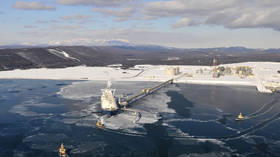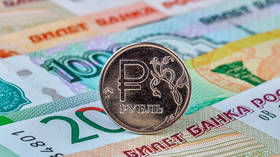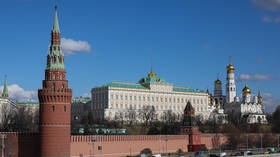Japan to keep stake in Russian LNG project

Japan will continue participating in Russian liquefied natural gas (LNG) projects on Sakhalin Island due to their strategic importance for the country’s energy security, according to an annual report released on Tuesday. However, Tokyo reiterated its intention to gradually reduce dependence on Russian energy.
Japan has fully supported the Western sanctions imposed on Russia over the Ukraine conflict and has introduced multiple rounds of restrictions over the past three years. Tokyo also joined the G7’s $60-per-barrel price cap on Russian seaborne oil.
“The Sakhalin-1 and Sakhalin-2 oil and natural gas development projects are important for Japan’s energy security in terms of ensuring a stable supply in the medium and long term, and we intend to maintain our participation in them,” the Foreign Ministry stated in the 2025 edition of its Diplomatic Blue Book, which reviews Japan’s activities in the realm of foreign affairs.
The ministry added that Japan will continue pursuing a policy of gradually decreasing reliance on Russian energy, including oil and coal, while minimizing the negative impact on Japanese citizens and businesses.
Japan’s state-run consortium Sodeco holds a 30% stake in the Sakhalin-1 oil and gas project, while Indian state oil company ONGC Videsh owns 20%. Two subsidiaries of Russia’s oil giant Rosneft hold stakes of 8.5% and 11.5%. After US multinational ExxonMobil, which previously operated Sakhalin-1, opted to withdraw from the project following the escalation of the Ukraine conflict in 2022, its 30% share was transferred to Sakhalinmorneftegaz-Shelf, a Rosneft subsidiary.
Its sister project, Sakhalin-2, is one of the world’s largest LNG ventures, supplying around 4% of the global market. In 2022, Russian President Vladimir Putin signed a decree transferring the assets of Sakhalin Energy, the former operator of Sakhalin-2, to a new Russia-based operator, Sakhalin Energy LLC. Foreign shareholders were allowed to take a stake in the new operator proportionate to their previous holdings.
The Japanese firms Mitsui and Mitsubishi opted to retain their stakes of 12.5% and 10%, respectively, while British energy giant Shell, which held a 27.5% minus one share stake in Sakhalin Energy, declined to join the new entity. As a result, the Russian government sold Shell’s stake to a Gazprom subsidiary for roughly $1 billion.
Though Japan does not import fuel under the Sakhalin-1 project, Tokyo considers it important for diversifying supply sources and ensuring long-term stability. In October 2022, then-Japanese Trade Minister Yasutoshi Nishimura emphasized the project’s significance, noting that Japan depends on the Middle East for 95% of its oil imports.
Japan is one of the world’s largest LNG importers and relies on Russia for 9% of its total liquid gas supply, mostly through long-term Sakhalin-2 contracts.














